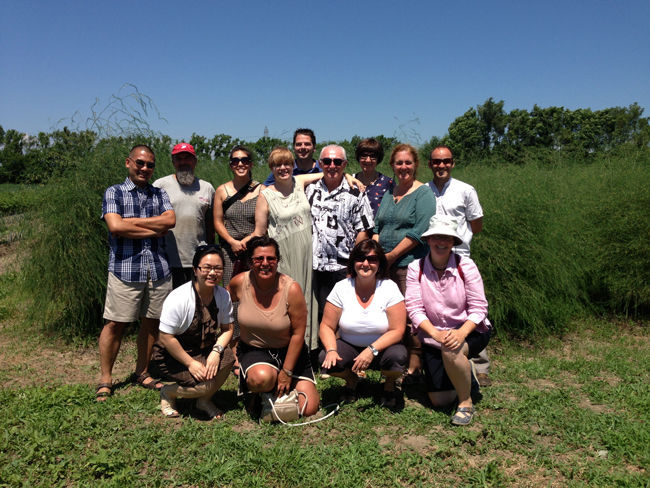
From chemicals, to tractors to computers, McGill purchases hundreds of millions of dollars of goods and services every year. Most of those purchases flow through McGill’s Procurement Services unit. When McGill adopted its first Procurement Policy in spring 2013, it gave Procurement Services the mandate to establish a culture of sustainable procurement practices at McGill and in its wider community.
“Our purchases generate multiple social and environmental impacts over their life cycle — this needs to be considered in our purchasing decision-making process,” says Kathy Zendehbad, Associate Director, Procurement Services.
Zendehbad, assisted by the McGill Office of Sustainability, gathered a cross-functional working group with representatives from University Services, IT Services, Facilities, Student Housing and Hospitality Services, and a team of Procurement Services buyers, as well as faculty members and students. With the goal of developing a holistic and structured approach to sustainable procurement, the group held multiple working sessions where they identified University-wide objectives for sustainable procurement, key actions and expected outputs, and projects that would deliver tangible results. The result is McGill’s Sustainable Procurement Strategic Plan, adopted in fall 2013. Key projects for the first two years include:
- Training procurement services buyers to incorporate life-cycle thinking and triple bottom line principles (social, environmental and economic considerations) into their day-to-day activities;
- Involvement of faculty and students in applied research pertaining to sustainable procurement in an institutional context;
- Development of an IT Asset Management Regulation, to bring the management of the University’s IT assets in step with governmental laws and regulations, and optimized material flows, following McGill’s 4R hierarchy (Rethink, Reduce, Reuse, Recycle);
- Incorporation of sustainability criteria into the University’s calls for tenders for goods and services.
The implementation of McGill’s Sustainable Procurement Strategic Plan has been identified as a Priority Action under McGill’s Vision 2020 Sustainability Strategy. However, additional resources and expertise were needed, which is where McGill’s Sustainability Projects Fund (SPF) comes in.
“The SPF allowed us to hire a temporary Project Manager, Stéphanie Leclerc, to implement the strategy, train our staff, and work with faculty and students on applied student research projects,” explains Zendehbad. “We knew that this was going to be a major undertaking for Procurement Services and that help of a professional and a subject matter expert would be instrumental to move forward efficiently.”
Leclerc started her work by setting up courses specifically designed for McGill’s procurement staff. With the staff’s initial training now completed, Leclerc supports the team by providing advice on building the sustainability criteria into a wide variety of calls for tenders. To date, the calls for tenders for computers, cleaning products, card payment solutions, furniture, office supplies, and travel services have been updated to reflect McGill’s sustainability requirements.
For example, as part of negotiations for the contracting of the University’s vending machine concession, Leclerc proposed specific criteria for:
- The energy efficiency and other life cycle specifications for the vending machines to be used (ex.: Energy Star, and, if possible, refurbished)
- The food content of the machine (ex.: local, healthy, Fair Trade choices)
- The way the deliveries would be ensured (ex.: deliveries ensured by electric vehicle)
“McGill’s supply chains and their related social or environmental impacts vary widely across product categories” explains Leclerc. “Sometimes, I feel we can have an important impact in terms of sending signals to the market, or expressing our expectations to particular industry associations.” In some instances, she mentions, it can be challenging to identify more sustainable options, so she also looks into the suppliers’ sustainability profiles and reputations. “Fortunately,” says Leclerc, “we can learn and improve on each contract and call for tenders, as we identify best practices, create awareness and collaborate with our internal and external partners for building more sustainable supply chains.”

Congratulations to your team for your amazing work and your contagious passion!